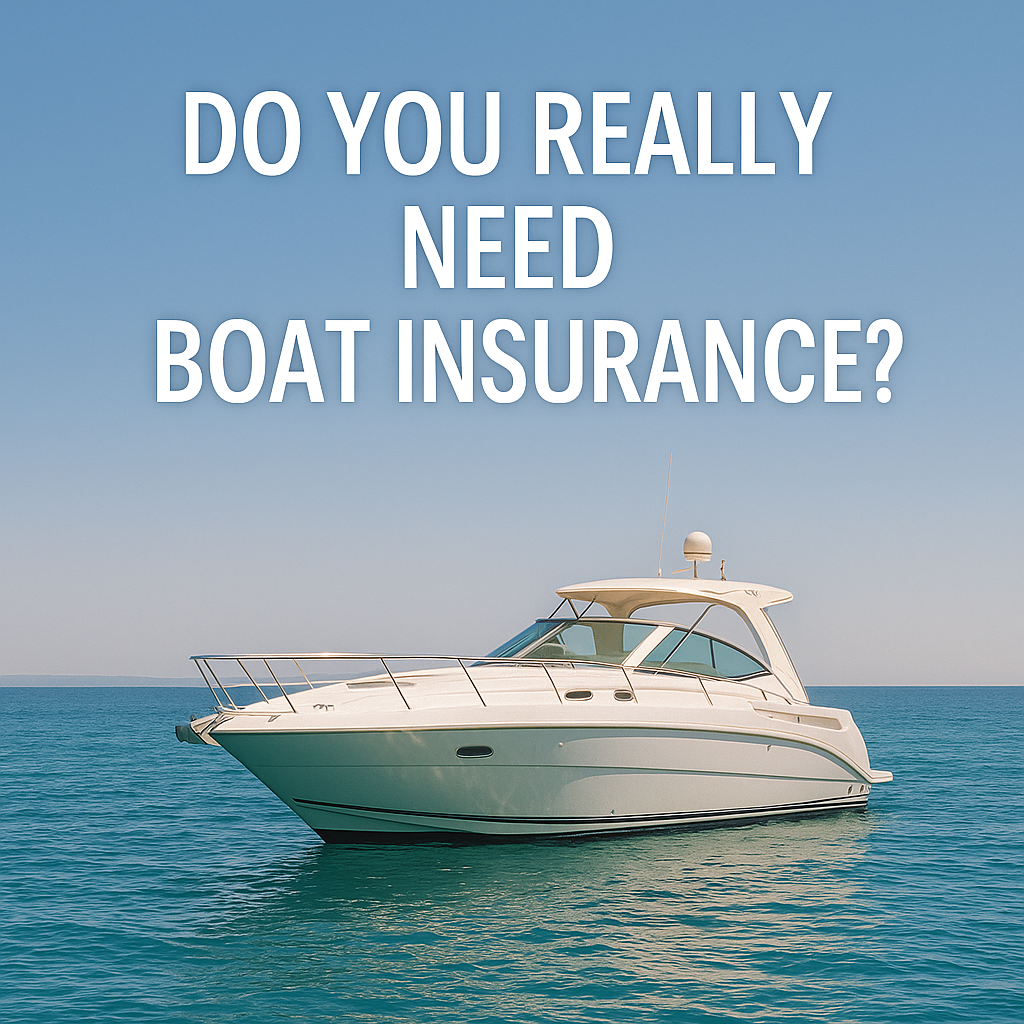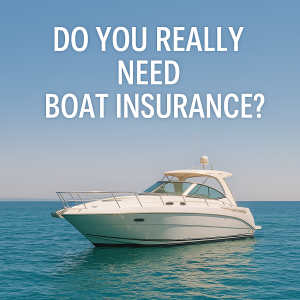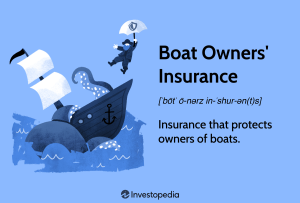Do you really need boat insurance? Discover what marine insurance covers, why it’s essential, and how to choose the right policy for your vessel. Learn about industry standards, real-world cases, and expert insights in this comprehensive maritime guide.”
Why Boat Insurance Matters in Modern Maritime Operations
Whether you’re the proud owner of a small sailboat, a luxury yacht, or a commercial fishing vessel, understanding marine insurance isn’t just a financial concern—it’s a crucial part of maritime risk management. With marine traffic increasing globally and unpredictable weather events becoming more frequent, the importance of insuring your vessel has grown exponentially.
According to a 2024 UNCTAD maritime report, over 80% of global trade by volume is carried by sea, and private recreational boating has grown significantly since 2020. This boom in both commercial and private maritime activity has brought renewed attention to marine insurance as a protective strategy.
What Is Boat Insurance and How Does It Work?
Boat insurance, a subset of marine insurance, protects your vessel and associated liabilities against accidents, theft, natural disasters, and other unforeseen events. It functions similarly to auto insurance, offering various levels of coverage depending on the type of vessel, location, use, and owner preferences.
Policies typically fall under two main types:
- Hull Insurance: Covers physical damage to the vessel.
- Liability Insurance (Protection & Indemnity): Covers damage or injury caused to third parties.
Some policies may also include specialized coverage like pollution liability, crew coverage, or salvage costs.
Types of Marine Insurance Policies
Hull & Machinery (H&M) Insurance
This policy protects against physical damage to the boat and its machinery. It’s most often used for commercial vessels, though high-value private yachts may also be covered under similar terms.
Example: If your motor yacht collides with a submerged object and the hull is breached, H&M insurance covers repair or replacement costs.
Protection & Indemnity (P&I) Insurance
This form of liability coverage is often required for commercial operators. It covers third-party bodily injury, property damage, and legal defense costs.
Example: A fishing vessel accidentally damages a marina dock. P&I insurance covers repair costs and any legal consequences.
Crew Insurance
Mandated by many flag states and the Maritime Labour Convention (MLC), crew insurance ensures medical care, disability benefits, and repatriation of seafarers.
Reference: International Transport Workers’ Federation (ITF) recommends full coverage under MLC Regulation 4.2.
Environmental Liability Coverage
Many modern policies include coverage for environmental damages, including oil spills and fuel leaks. This has become particularly relevant with stricter environmental enforcement by organizations such as EMSA and the Paris MoU.
Personal Property & Equipment Coverage
This add-on covers onboard items like electronics, navigation tools, and fishing gear.
Salvage and Wreck Removal
Wreck removal is often mandated by law. This coverage pays for raising or removing your sunken vessel.
Example: The wreck removal of the MV Wakashio in Mauritius in 2020 incurred millions in costs.
Real-World Case Studies
Case Study 1 – Yacht Grounding in the Mediterranean
In 2023, a 60-foot luxury yacht grounded off the coast of Sardinia. Though all passengers were safe, the hull sustained severe damage. The owner’s hull insurance covered the $450,000 repair cost, while liability insurance paid for minor damage to a coral reef.
Case Study 2 – Storm Damage in Southeast Asia
During Typhoon Noru in 2022, several fishing vessels in the Philippines were damaged. Insured vessels had their repairs fully reimbursed, while uninsured boat owners received limited government aid.
–
Key Coverage Features to Consider
Agreed Value vs Actual Cash Value
- Agreed Value: Pays the amount listed in your policy with no depreciation.
- Actual Cash Value: Takes depreciation into account, often resulting in lower payouts.
Navigational Limits
Some policies restrict where your vessel can operate. Violating these can void coverage.
Deductibles and Exclusions
Higher deductibles lower your premiums but increase out-of-pocket expenses during a claim.
Common Exclusions:
- Normal wear and tear
- Damage from poor maintenance
- War and nuclear risks (some exceptions for commercial coverage)
–
Do You Legally Need Boat Insurance?
Unlike auto insurance, boat insurance is not universally required. However:
- Marinas often require liability coverage.
- Commercial operators must adhere to flag state regulations and international conventions.
- Banks require insurance if your vessel is financed.
Example: In Canada, all commercial vessels over 15 gross tons must carry liability insurance (Transport Canada, 2023).
–
Cost of Boat Insurance
Premiums vary widely based on:
- Vessel type and size
- Value and usage (recreational vs. commercial)
- Operating area
- Owner experience
Example:
- Small sailboat: ~$300/year
- Luxury motor yacht: $5,000+
- Commercial fishing vessel: $7,000 – $25,000 depending on coverage
Global Marine Insurance Trends (2020–2025)
- Digital Policy Management: Platforms like Inmarsat and Lloyd’s Register offer digital logbooks and claims tracking.
- Climate-Driven Risk Modeling: Insurers are integrating NOAA and EMSA data for climate forecasting.
- Cyber Coverage: With more vessels using connected navigation systems, cyber insurance is emerging.
–
Frequently Asked Questions (FAQ)
Do I need boat insurance if my vessel is docked?
Yes, risks like fire, theft, and storms can still cause significant damage even when the boat isn’t in use.
Does boat insurance cover passengers?
Liability coverage often includes passenger injuries, but always confirm with your provider.
What if I sail internationally?
Check that your policy covers international waters and complies with flag state laws.
Can I insure a boat I’m restoring?
Yes, but coverage may be limited to storage and transport unless it passes a seaworthiness inspection.
Is insurance required for sailing clubs or charters?
Yes. Commercial activities generally require more robust policies including third-party and passenger liabilities.
What documents are needed to get insured?
You’ll typically need registration, proof of ownership, a marine survey, and sometimes a captain’s license.
Can I switch policies mid-season?
Yes, but you may incur penalties. Compare benefits carefully before switching.
Conclusion: Is Boat Insurance Worth It?
Absolutely. Whether you’re protecting against storm damage, theft, or third-party liability, marine insurance offers peace of mind and financial protection. For commercial operators, it’s often a legal necessity. For private owners, it can be a lifesaver when the unexpected strikes.
Choose your policy based on your vessel, your operating area, and your usage. And always work with a reputable insurer familiar with maritime regulations.
References
- UNCTAD. (2024). Review of Maritime Transport. https://unctad.org/
- Transport Canada. (2023). Commercial Vessel Registration and Insurance. https://tc.canada.ca
- ITF. (2022). Seafarers’ Rights under MLC 2006. https://www.itfglobal.org
- EMSA. (2023). Annual Overview of Marine Pollution Incidents. https://emsa.europa.eu
- Inmarsat Maritime. (2024). Digital Ship Management. https://www.inmarsat.com
- Lloyd’s Register. (2024). Maritime Cyber Security. https://www.lr.org
- Paris MoU. (2023). Port State Control Annual Report. https://www.parismou.org
- NOAA. (2023). Climate and Weather Risk Assessments. https://www.noaa.gov
- The Nautical Institute. (2023). Guidelines on Marine Insurance. https://www.nautinst.org



